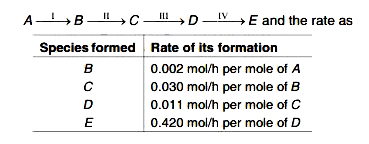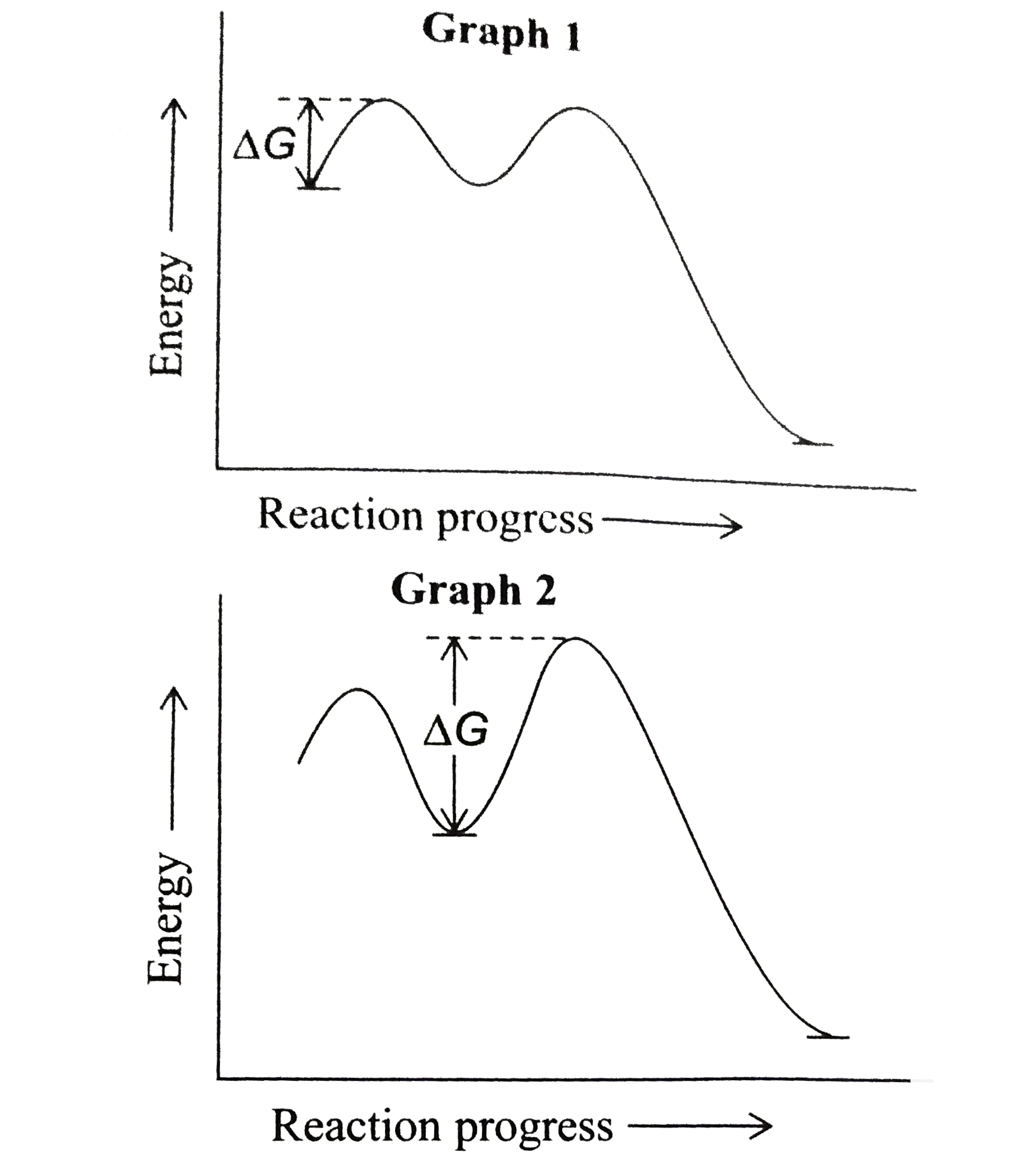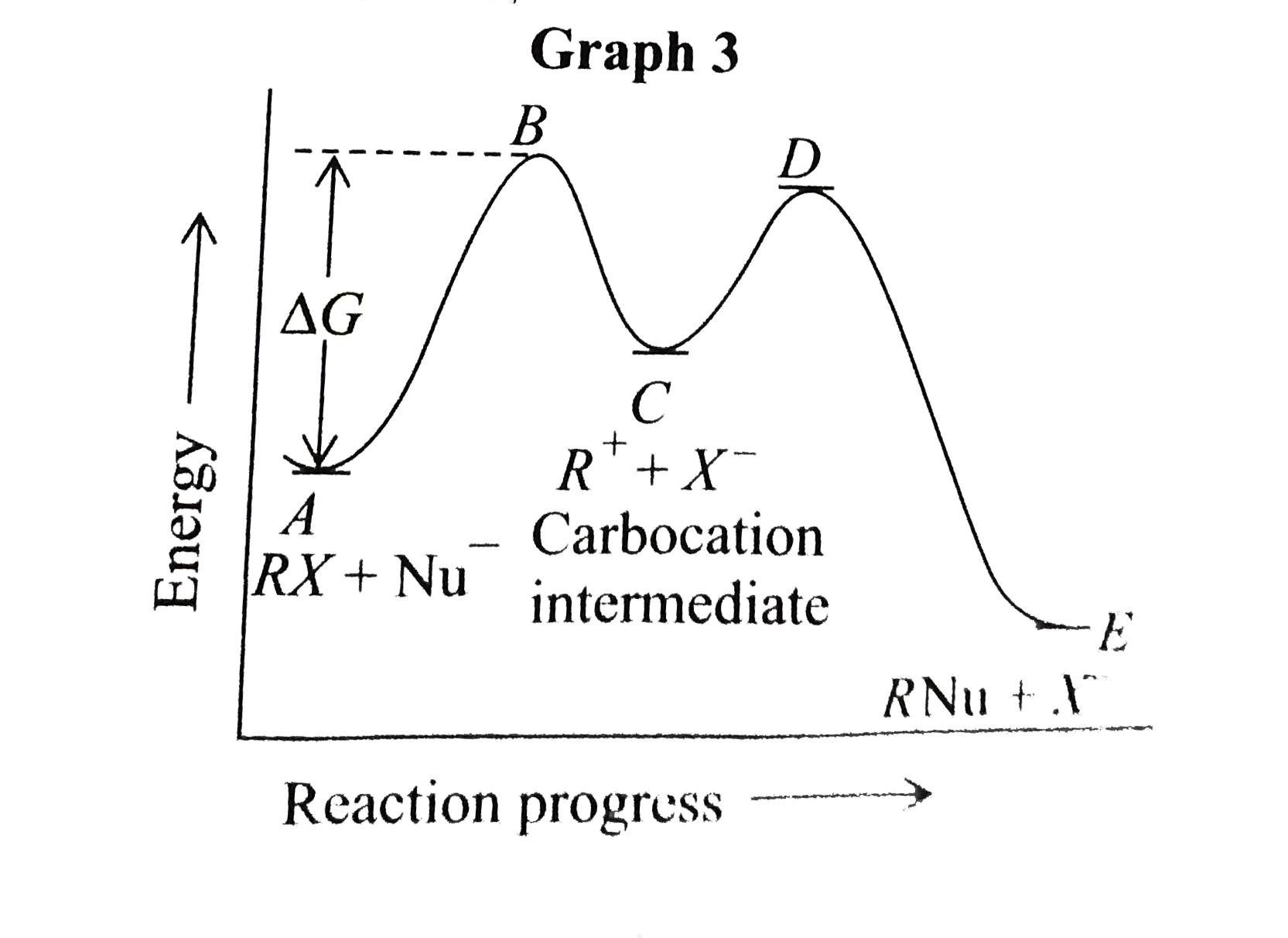
Observe the following reaction and mention the number which show slowest and rate determine step.
The correct Answer is:4
In free radical substitution reaction alkyl free radical formation is rate determining step.
Similar Questions
Identify the products in the following disproportional reaction and also mention rate determining step.
2H−D∣C=O+∘OH→Acid salt(P)+Alcohol(Q)
View SolutionIdentify the products in the following disproportional reaction and also mention rate determining step.
2H−D∣C=O+∘OH→Acid salt(P)+Alcohol(Q)
View Solution
Knowledge Check

Consider the above reaction and answer A to E.
Which step is rate determining step?Aattack of nucleophile CH3OHBattack of electrophile H⊕Cattack of nucleophile H2ODattack of electrophile CH3Given the hypothetical reaction mechanism
 E and the rate as The rate determining step is Astep IBstep IICstep IIIDstep IV
E and the rate as The rate determining step is Astep IBstep IICstep IIIDstep IVWhich of the following compound give solvolysis reaction with slowest rate ?
AP−⊕NR3−C6H4−CH2−BrBp−CCl3−C6H4−CH2−BrCP−N≡C−C6H4−CH2−BrDC6H5−CH2−Br
Which of the following compound give solvolysis reaction with slowest rate ?
View SolutionWhich of the following compound of cement sets at the slowest rate?
View SolutionWhich of the following compounds of cements sets at the slowest rate?
View SolutionSN1 reaction is a first order nucleophilic substitution e.g.
CH3−CH3∣C∣CH3−Br+H2O→CH3−CH3∣C∣CH3−OH+HBr
The concentration of nucleophile does not appear in the rate law expression.
Reaction rate k[RX]
In a mulptistep organic reaction , the rate-limiting step is the slowest step . Rate determining step is represented by the following energy level diagram:
A reaction energy level diagram for an SN1 reaction .The rate limiting step is spontaneous dissociation of an alkyl halide to give a carbocation intermediate:

In SN1 reaction the hybridization changes in rate determination step. Select the correct change among the following:
View SolutionAssertion : Complex reaction takes place in different steps and the slowest step determines the rate of reaction.
Reason : Order and molecularity of a reaction are always equal.
View Solution
